AODA Compliance for Digital Documents
How Ontario’s accessibility law applies to PDFs and other digital information.
The Accessibility for Ontarians with Disabilities Act (AODA) establishes AODA compliance requirements for organizations operating in Ontario. One of its key components is the Information and Communication Standards, which govern how information is provided to the public.
These standards apply directly to digital documents, including PDFs. This article explains what AODA compliance means for digital documents and how accessibility requirements are evaluated in practice.
What is AODA compliance
AODA compliance means meeting Ontario’s legal requirements for accessibility. The goal of the legislation is to ensure that people with disabilities can access information, services, and communications on an equal basis.
For digital content, AODA compliance focuses on whether information is accessible to users who rely on assistive technologies such as screen readers or keyboard navigation.
The Information and Communication Standards
The Information and Communication Standards are part of the AODA framework. They require organizations to make information accessible when it is provided to the public or customers.
This includes:
-
Websites and web content
-
Digital documents such as PDFs
-
Information used in employment, education, and services
-
Public-facing materials and communications
The standards reference accessibility guidelines to define what “accessible” means in practice.
Who must comply with AODA requirements
The Information and Communication Standards apply to:
-
Public sector organizations in Ontario
-
Private and nonprofit organizations with 50 or more employees
-
Organizations providing goods, services, or facilities in Ontario
Compliance deadlines and obligations vary depending on organization type, size, and sector.
How AODA applies to digital documents
Under the AODA, digital documents must be accessible to people with disabilities when they are required to access information independently.
For PDFs and other documents, this typically means:
-
Content can be read by screen readers
-
Documents are navigable using a keyboard
-
Structure and reading order are logical
-
Images include meaningful text alternatives
-
Tables and forms are usable and understandable
Documents that rely only on visual formatting may fail accessibility requirements even if they appear clear to sighted users.
AODA and WCAG
The Information and Communication Standards reference WCAG as the technical benchmark for accessibility.
In practice, this means WCAG success criteria are used to evaluate whether digital content meets accessibility requirements under the AODA.
However, WCAG does not define how accessibility must be implemented within specific file formats such as PDFs. As a result, additional standards and testing methods are often used when evaluating document accessibility.
AODA compliance and PDFs
PDFs present unique accessibility challenges because they rely on internal structure rather than visual layout.
To meet AODA requirements, PDFs typically must include:
-
Proper tagging
-
Logical reading order
-
Correct use of headings and lists
-
Accessible tables and forms
-
Defined document language and metadata
Untagged or poorly structured PDFs frequently fail AODA accessibility reviews.
Common AODA accessibility issues in documents
During accessibility evaluations, common issues include:
-
Missing or incorrect tags
-
Improper reading order
-
Images without alternative text
-
Inaccessible tables or form fields
-
Missing document language or metadata
These issues can prevent users from accessing information independently and may result in non-compliance.
How AODA document accessibility is evaluated
AODA compliance for digital documents is typically evaluated using a combination of automated checks and manual testing.
Automated tools can identify some technical issues, but manual review and assistive technology testing are required to confirm usability and real-world accessibility, particularly for complex documents.
Conclusion
AODA compliance requires organizations in Ontario to ensure that digital documents are accessible to people with disabilities. For PDFs, this means more than visual formatting—it requires proper structure, testing, and verification.
Organizations subject to the AODA should treat document accessibility as an ongoing responsibility rather than a one-time task.
Accessibility Testing Note
AODA document accessibility is commonly verified through accessibility testing that includes both technical review and assistive technology testing.
